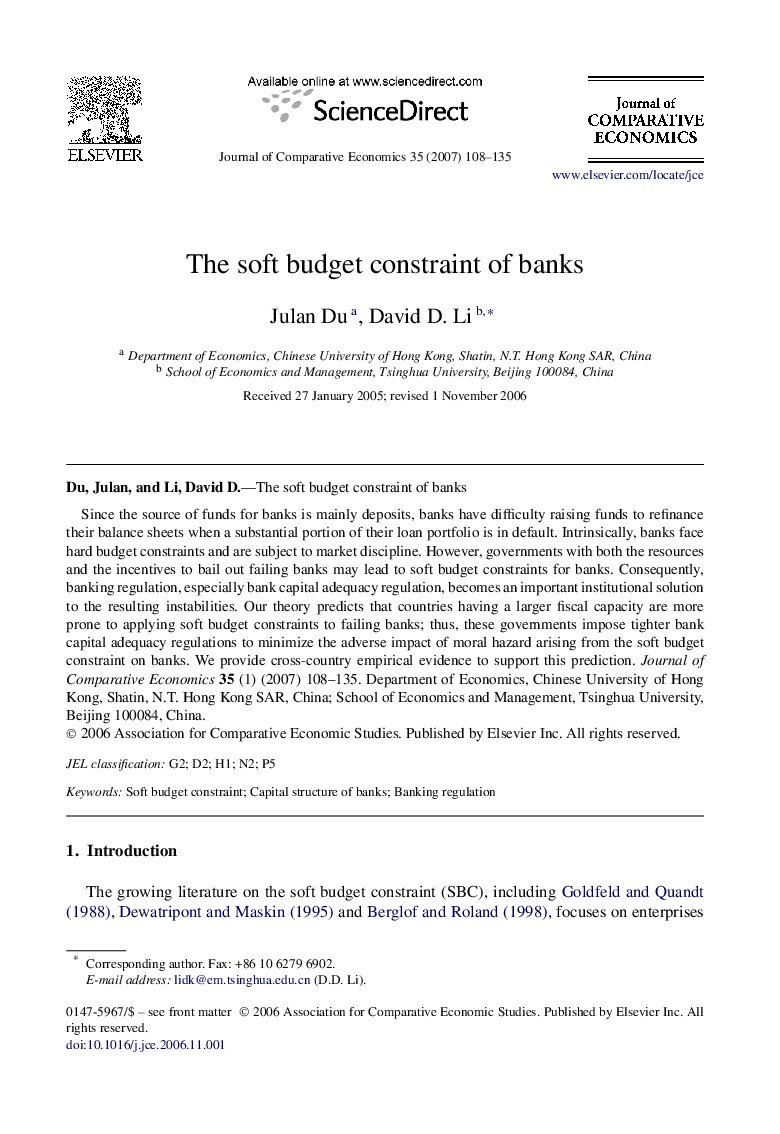| Article ID | Journal | Published Year | Pages | File Type |
|---|---|---|---|---|
| 5092572 | Journal of Comparative Economics | 2007 | 28 Pages |
Abstract
Since the source of funds for banks is mainly deposits, banks have difficulty raising funds to refinance their balance sheets when a substantial portion of their loan portfolio is in default. Intrinsically, banks face hard budget constraints and are subject to market discipline. However, governments with both the resources and the incentives to bail out failing banks may lead to soft budget constraints for banks. Consequently, banking regulation, especially bank capital adequacy regulation, becomes an important institutional solution to the resulting instabilities. Our theory predicts that countries having a larger fiscal capacity are more prone to applying soft budget constraints to failing banks; thus, these governments impose tighter bank capital adequacy regulations to minimize the adverse impact of moral hazard arising from the soft budget constraint on banks. We provide cross-country empirical evidence to support this prediction. Journal of Comparative Economics 35 (1) (2007) 108-135.
Related Topics
Social Sciences and Humanities
Economics, Econometrics and Finance
Economics and Econometrics
Authors
Julan Du, David D. Li,
